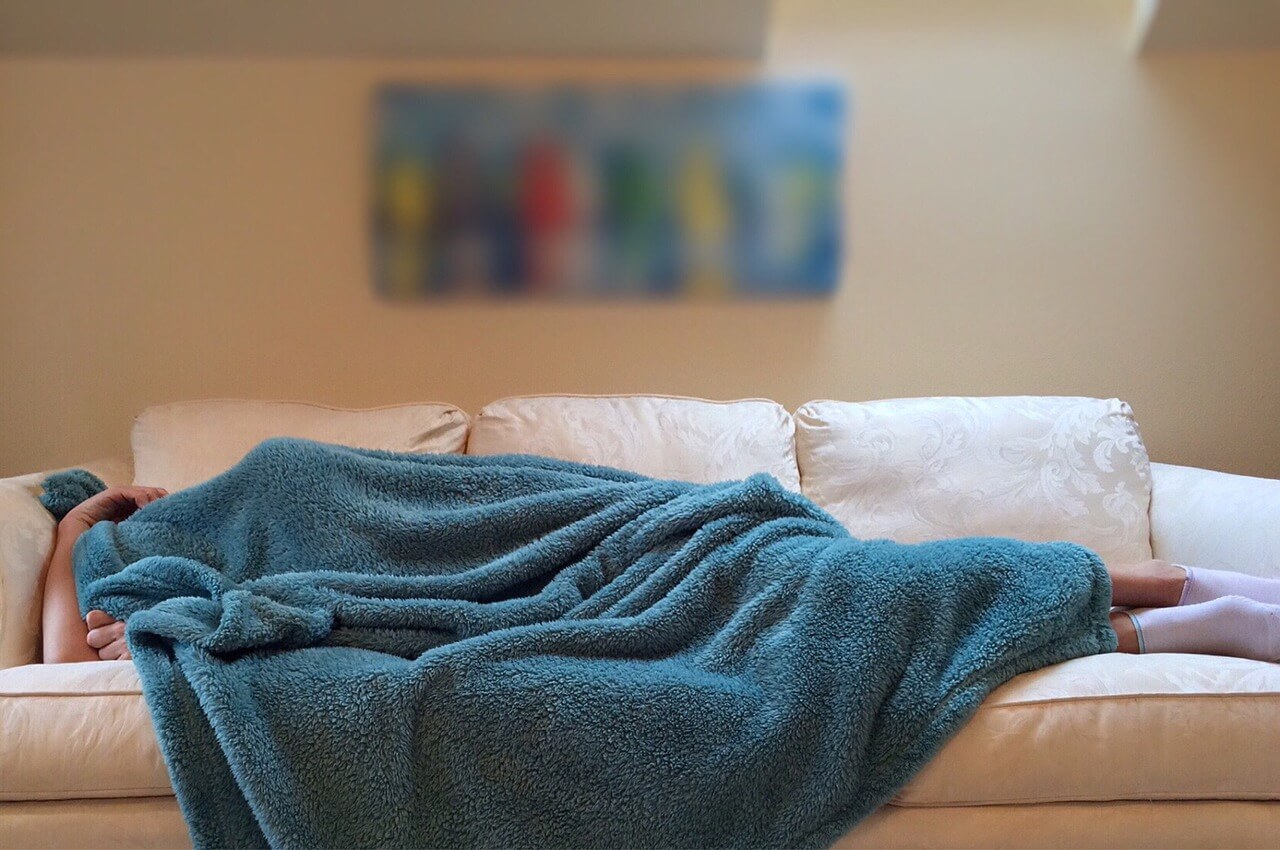How Does Skipping a Run Affect You?

Runners are regimented, dedicated, focused… and human, which means we falter. Often runners are the hardest on themselves without a real reason to be. Giving yourself a little wiggle room or allowing yourself to realize that there are factors outside of your control that affects your run is important. On rare occasion though, runners get a wild hair, buck the system and just skip a run for no reason. Skipping a run when you have a good reason (being sick, exhaustion, health concerns to name a few) is crucial to running health, randomly skipping a run is different. Most runners have their schedule so ingrained in their routines they would have to try to skip a run, but on occasion, it happens. So how does that affect the rest of our day and the other decisions we make?
A Good Skip vs. a Bad Skip
By no means should it ever be said that skipping your run is always a bad thing. It is imperative you listen to your body regardless of what your training plan says. Even the best-laid plans should be abandoned if you are sick, injured or your family needs you. All adults know the difference between when they should take the day off for the betterment of themselves or family and when they are using others things as a reason not to run.

Physical ailments are not the only reason to skip a run. Any new, intense or high mileage training should be set up in a way where if you simply cannot mentally handle a run on a given day skipping one or two over a few months training periods should not affect your performance. And not going for your run doesn’t mean sitting around all day either. Take that boot class that is always so much fun instead or go on a long leisurely stroll with friends. What you don’t want is to make skipping a run a habit. If you find that you consistently want or feel like you to need to skip the same run every week it might be time to reevaluate your training schedule.
It’s Really In Your Head
Surprisingly, we activate more brain cells moving our body that when we are doing anything else. When we skip a run our mood is directly affected. Running, like any cardio, can be as effective as taking prescription antidepressants. You’re producing endorphins when you run along with the body’s other mood-boosting chemicals like dopamine, serotonin, norepinephrine to name a few. Working out produces proteins called myokines, which can help shield your brain from depression caused by stress. When you skip a run you miss the happy chemicals you are used to having flow through your body and you are more prone to end up feeling a bit blue as a result on top of the runner’s guilt.
You might also not feel as sharp. In a study, 10 pairs of identical twins were evaluated. One twin stayed active while the other did not. Years later the more active twin had more gray matter which is tissue in your brain that controls the central nervous system. Exercise is good for your entire brain, including the important gray matter which makes your brain stronger against stress and aging. When you stop working out, you may begin to have issues with critical thining and processing information.
If you stop working out, your gray matter may take a hit, setting the stage for issues processing information and thinking critically even in the short term.
You may notice trouble concentrating on a day you skip a run (or even a much-needed rest day). Short 10-40 minute bursts of movement create an instant improvement in concentration due to increased blood flow to your brain. It may also relate to the higher levels of endorphins and certain hormones in your blood that keeps your brain on high alert during your run. When you skip your run the extra blood flow and these chemicals drop off.

Avoid the Slippery Bad Decision Slope
Aside from what happens within your brain, how you react to other decisions and handle skipping a run is crucial. You made a bad decision related to your workout and can fall into the slippery slope where you keep making poor choices. That is what needs to be prevented; keep yourself from throwing the towel in ruining the remainder choices you have to make. Do not make choices that will make the rest of your day bad. Those choices can be from what you choose to eat to how you spend the remainder of your day. If you miss a run for no reason, you can’t beat yourself up and further punish yourself. Know you are going to get back out there and crush your mileage the next day.
What Happens to Your Body
Physically what happens when we miss a run? In short, it depends on what your running schedule is like. Runners that are highly trained show a greater scale of loss, at least compared to those not trained or even moderately trained runners.

Based on where your skipped run falls in your running schedule you probably won’t notice any immediate effects, but there will be changes internally within three consecutive days of not running. The body will recognize loss of muscle and make changes to preserve the muscle. You probably won’t really notice and you won’t gain weight immediately if your diet doesn’t also change. After three consecutive days, the consequences continue to mount.
Does blowing off your run for margaritas with friends make you a bad runner? Not at all, it makes you a well-rounded person. What you need to make sure of is that it doesn’t negatively affect your psych if you chose that option. And if you find yourself hitting more ‘Happy Hours’ than runs maybe you find time in the morning to run so you can do both. Runners can always find the time to run.
Sources
Latest Articles
 Is Running on a Treadmill Easier Than Running Outside?Runners have their own preferences, whether it is treadmill running, running outside on the road, or exploring trails. So...
Is Running on a Treadmill Easier Than Running Outside?Runners have their own preferences, whether it is treadmill running, running outside on the road, or exploring trails. So... Is It OK to Use Trail Running Shoes on the Road?While trail running shoes can be used on roads, especially in situations where a runner encounters mixed terrains or pref...
Is It OK to Use Trail Running Shoes on the Road?While trail running shoes can be used on roads, especially in situations where a runner encounters mixed terrains or pref... How to Fix Sore Quads After Running?Rest, ice, gentle stretching, and over-the-counter pain relievers can help soothe sore quads after running. Also, ensure ...
How to Fix Sore Quads After Running?Rest, ice, gentle stretching, and over-the-counter pain relievers can help soothe sore quads after running. Also, ensure ... 10 Fruits With The Most Electrolytes to Replace Sports DrinksThese fruits are high in electrolytes such as potassium, magnesium, and calcium, essential for hydration, muscle function...
10 Fruits With The Most Electrolytes to Replace Sports DrinksThese fruits are high in electrolytes such as potassium, magnesium, and calcium, essential for hydration, muscle function...

